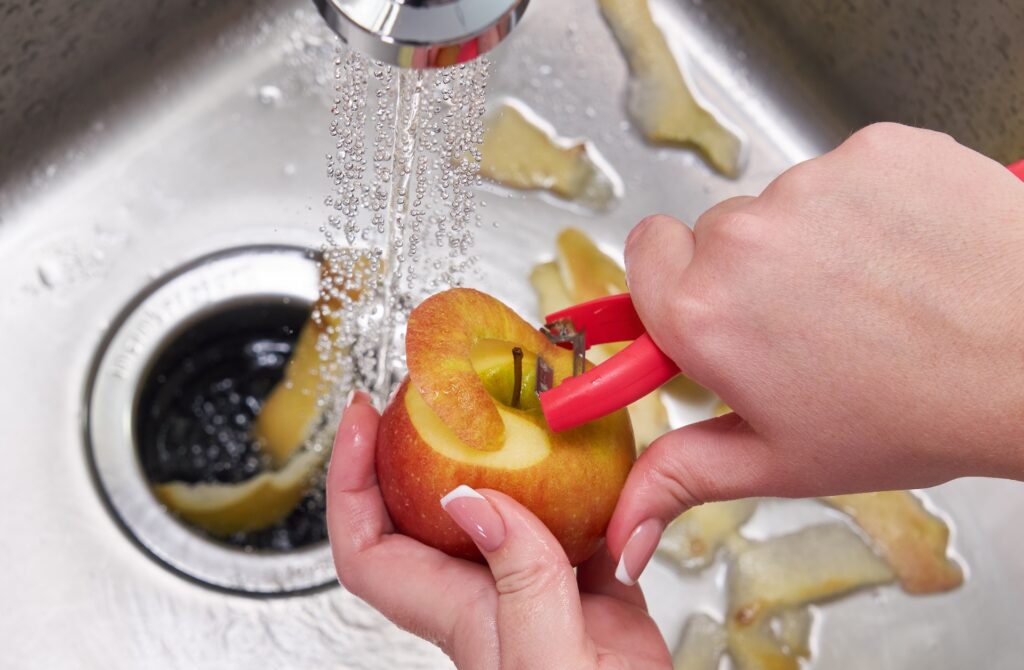A garbage disposal is a convenient kitchen appliance, but using it improperly can lead to serious plumbing issues, costly repairs, and safety hazards. This article provides essential tips for garbage disposal care, highlighting the common mistakes to avoid and the best practices to keep your disposal running smoothly. From knowing what not to put down the disposal to routine maintenance tips, these guidelines will help you extend the lifespan of your unit and prevent dangerous problems in your kitchen.

7 Essential Tips for Garbage Disposal Care: Avoid These Dangerous Mistakes
Your garbage disposal is a kitchen powerhouse, but misusing it can lead to serious problems. To keep it running smoothly, it’s crucial to know what should never go down the drain. In this guide, we’ll share 7 essential tips for avoiding dangerous mistakes with your garbage disposal. By following these powerful strategies, you can prevent clogs, damage, and costly repairs, ensuring your kitchen stays in top shape.
1. Fibrous Vegetables: A Hidden Threat
Vegetables like celery, asparagus, and artichokes have tough fibers that can wrap around your disposal’s blades, causing jams and motor strain. These fibers can accumulate over time, leading to reduced efficiency or even a complete breakdown. Compost these scraps instead of grinding them.
2. Grease and Fat: The Silent Cloggers
Pouring grease or fat down your disposal is a recipe for disaster. As these substances cool, they solidify, leading to stubborn clogs that can block your pipes. Always let grease solidify before disposing of it in the trash to avoid this common pitfall.
3. Eggshells: A Sticky Situation
Eggshells may seem harmless, but they can cause more harm than good. The thin membrane inside the shell can stick to the blades and walls of your disposal, creating a mess that’s hard to clean. Over time, this buildup can lead to clogs, so it’s best to toss eggshells in the compost or trash.
4. Coffee Grounds: The Sludge Culprit
Coffee grounds might seem small, but they can accumulate in your pipes, forming a thick sludge that leads to slow drains and blockages. Instead of using your disposal, add coffee grounds to your compost pile or dispose of them in the trash.
5. Pasta, Rice, and Bread: The Swelling Menace
Starchy foods like pasta, rice, and bread expand when they absorb water, even after cooking. When these foods go down the drain, they can swell and cause blockages. Avoid this issue by discarding starchy leftovers in the trash or compost.
6. Bones: Blade Destroyers
Even small bones can wreak havoc on your disposal’s blades, dulling them or jamming the motor. Avoid putting any bones down the disposal, and instead, discard them in the trash.
7. Fruit Pits and Seeds: The Tough Stuff
Hard pits and seeds from fruits like peaches and avocados can damage your disposal’s blades and cause jams. These items are better suited for the trash or compost.
Upgrade Your Plumbing with Valhalla Plumbing!
The Importance of Proper Maintenance
Understanding what not to put into your garbage disposal is only part of the equation. Regular maintenance is essential to keep your disposal in top condition. This includes:
-
Running Cold Water: Always use cold water when operating your disposal. Cold water solidifies grease and fat, making it easier for the disposal to chop up.
-
Using it Regularly: Regular use prevents rust and corrosion, keeping your disposal in good working order.
-
Cleaning Weekly: Clean your disposal weekly with a mixture of ice cubes and vinegar or baking soda to remove debris and prevent odors.
FAQs About Garbage Disposal Care
Q: Can I put citrus peels in the garbage disposal?
A: Yes, small amounts of citrus peels like lemon or orange can help freshen up your disposal. However, avoid putting large quantities or whole peels as they can cause clogs.
Q: Is it okay to put ice in my garbage disposal?
A: Yes, ice cubes can help clean the blades of your disposal and remove buildup. They’re also a great way to sharpen the blades.
Q: What should I do if my garbage disposal is jammed?
A: First, turn off the disposal and check for visible blockages. Use a wrench or the disposal’s manual crank to free the jam. If the problem persists, contact a professional plumber.
Q: How often should I clean my garbage disposal?
A: It’s a good idea to clean your disposal once a week using a mixture of ice cubes and vinegar or baking soda. This helps remove debris and prevent odors.
Q: Can I pour hot water down the garbage disposal?
A: While running hot water isn’t harmful, it’s best to use cold water when operating the disposal. Cold water helps solidify any grease, making it easier for the disposal to chop up and prevent clogs.
Proper garbage disposal care and maintenance of your garbage disposal can prevent costly repairs and keep your kitchen running efficiently. By avoiding common mistakes and understanding what not to put into your garbage disposal, you can extend the life of this essential kitchen appliance.
If you encounter any problems with your garbage disposal or need a replacement, Valhalla Plumbing is here to help. Our expert plumbers can handle all your disposal needs, from repairs to full installations. Don’t wait until a small issue becomes a big problem—contact Valhalla Plumbing today!
Visit https://ValhallaPlumbing.com or call us at (941) 875-1943 to schedule your service and keep your kitchen running smoothly.

